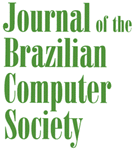Abstract
Pharos is a collaborative application which enables users to share document annotations. Annotations of a same subject are stored altogether in channels, and channels are replicated to improve performance. What characterises data replication in a collaborative application like Pharos is the way users see data. If, for instance, mutual consistency is required, then collaboration should be synchronous. On the other hand, if remote users can work in disconnected mode, collaboration can be asynchronous with weaker constraints on data freshness. In this paper, we focus on asynchronous replication which is typically required on the Web. We propose an optimistic replication model based on lazy group replication and a protocol to detect and resolve potential conflicts to refresh the replicas. This protocol is based on the ordering of write operations at each site using its timestamps values. Careful log management is the key to its implementation. We describe the implementation of our model in the Pharos application.
Web; Collaborative Applications; Asynchronous Replication; Optimistic Replication; Log Management
Full text available only in PDF format
ARTICLES
Optimistic replication in Pharos, a collaborative application on the web
Esther PacittiI; Olivier DedieuII
IAtlas Group, Inria and IRIN, Nantes - France Esther.Pacitti@irin.univ-nantes.fr
IIGIE Dyade (Bull-INRIA) Le Chesnay, France Olivier.Dedieu@inria.fr
ABSTRACT
Pharos is a collaborative application which enables users to share document annotations. Annotations of a same subject are stored altogether in channels, and channels are replicated to improve performance. What characterises data replication in a collaborative application like Pharos is the way users see data. If, for instance, mutual consistency is required, then collaboration should be synchronous. On the other hand, if remote users can work in disconnected mode, collaboration can be asynchronous with weaker constraints on data freshness. In this paper, we focus on asynchronous replication which is typically required on the Web. We propose an optimistic replication model based on lazy group replication and a protocol to detect and resolve potential conflicts to refresh the replicas. This protocol is based on the ordering of write operations at each site using its timestamps values. Careful log management is the key to its implementation. We describe the implementation of our model in the Pharos application.
Keywords: Web, Collaborative Applications, Asynchronous Replication, Optimistic Replication, Log Management
- [1] P. A. Bernstein, E. Newcomer: Principles of Transaction Processing. Morgan Kaufmann, 1997.
- [2] V. Bouthors, O. Dedieu: Pharos, a Collaborative Infrastructure for Web Knowledge Sharing. European Conference on Digital Libraries (ECDL '99), Paris, Lecture Notes in Computer Science, Springer-Verlag, 1999.
- [3] A. D. Birrel, R. Levin., R.M. Needham, M. D.Schroeder: "Grapevine: an exercise in distributing computing", Communications of the ACM (25) 4, April 1982.
- [4] O. Dedieu: "Réplication Optimiste pour les Applications Collaboratives Asynchrones", Thèse de Doctorat, Systèmes Informatiques, Université de Marne la Vallée, 2000.
- [5] O. Dedieu : "J Plug, a framework to build modular applications", http://webtools.dyade.fr/jplug
- [6] S. Lawrence , C. L. Giles: "Searching the World Wide Web", Science 280,5360,1998
- [7] H. Marais, K. Bharat: Supporting cooperative and personal surfing with a desktop assistant. ACM Symposium on User Interface Software and Technology (UIST-97), ACM Press, pp. 129-138, NY, 1997.
- [8] M.T. Özsu, P. Valduriez: Principles of Distributed Database Systems", 2nd Edition, Prentice Hall, 1999.
- [9] E. Pacitti, P. Minet, E. Simon: "Replica Consistency in Lazy Master Replicated Databases". Distributed and Parallel Databases, Kluwer Academic, accepted for publication, to appear.
- [10] E. Pacitti, P. Minet, E. Simon: Fast Algorithms for Maintaining Replica Consistency in Lazy Master Replicated Databases. Int. Conf. on Very Large Databases (VLDB '99), Edinburgh, 1999.
- [11] E. Pacitti, E. Simon: Update Propagation Strategies to Improve Freshness in Lazy Master Replicated Databases. The VLDB Journal, 8(3-4) :305-318,2000.
- [12] E.Pacitti, E. Simon, R. Melo: Improving Data Freshness in Lazy Master Schemes. IEEE Int. Conf. on Distributed Computing Systems (ICDCS'98), Amsterdam, 1998.
- [13] E. Pacitti, P. Valduriez: Replicated Databases: concepts, architectures and techniques. Networking and Information Systems Journal, 1(4-5): 519-546,1998.
- [14] D. B. Terry, A. J et. al. : Session Guarantees for Weakly Consistent Replicated Data. Int. Conf. On Parallel and Distributed Information Systems (PDIS' 94), Austin, Texas, 1994.
Publication Dates
-
Publication in this collection
14 Sept 2004 -
Date of issue
Nov 2002

